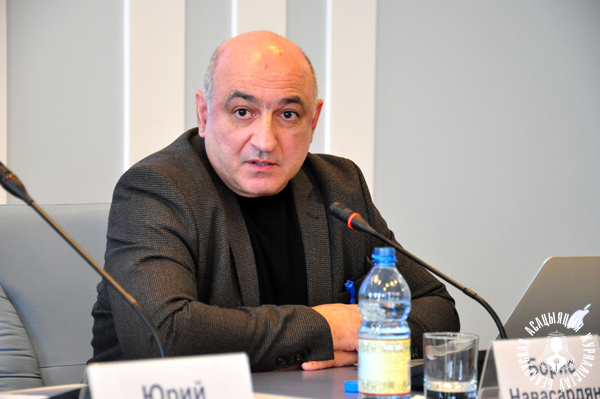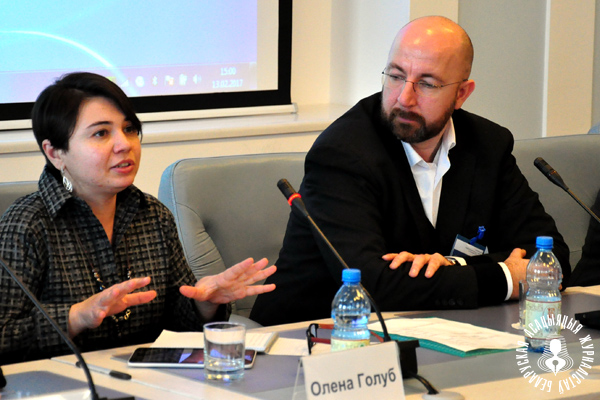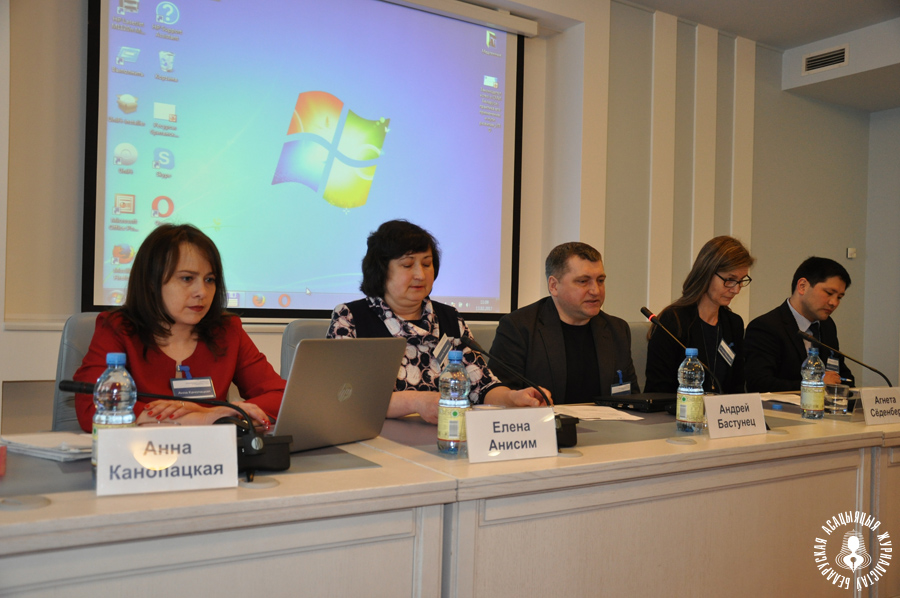Media in Belarus Conference: Challenges and Chances
The two-day conference “Mass Media in Belarus: Challenges and Chances” gathered media professionals, civil society and governmental officials from Belarus and abroad. Some important messages below briefly explain what issues are faced by journalistic community in Belarus, and not only, from the perspective of laws and politics.
Boris Navasardian (Yerevan Press Club):
“Press freedom means having an opportunity to publish something which somebody would not want to see published. Nowadays, politics is substituted by political technologies, and journalism is substituted by PR. These processes are mutually related. Political technologists and populist politicians took the most advantage of the information society.”

“The Internet enabled larger access to free content, which cut down on revenues of publishers. A customer would not pay for journalists’ work if there were a possibility to get information for free. Thus, the producer of informational content becomes the one who is ready to pay authors. An example here are free-of-charge papers in public places, advertisement outlets etc. There is a growing segment of the media ready not to publish something what somebody would not want to be in the public eye.”
“Paid journalism (plugola, the local term jeansá) is part of this situation. Fifteen years ago, it was an anomaly, whereas now nobody minds having a possibility to publish something for money. Sometimes, racket takes place. There is a trial nowadays in Yerevan over an editor who had demanded a bribe for not disclosing information that there were Azerbaijani share-holders in a bank.”
“What can be done here? Enhancing public media that would serve to the public interest. An example can be the Radio Svaboda or Belsat. But we see problems here, mainly, the financial ones, and the influence of politicians who decide on financial issues.”
“I see a way out in public initiatives and civil society: self-regulation, strengthening journalists’ ethics, creating quality content, expanding media literacy; also researching the informational field and identifying propaganda elements.”
Olena Golub (Institute of Mass Information, Ukraine):
The media sphere has changed in Ukraine since the revolution of 2013 – 2014. There is an ongoing denationalization process, lots of documents have been made public, information on tenders has become open. Meanwhile, there stays the problem of media depending on owners. All oligarchs are politically engaged, and it would be naïve to think that mass media would cover political events in an unbiased way.” On the positive side, Olena Golub mentioned the recent law obliging to publicize the names and information about media owners.
“The question of propaganda has emerged four or five years ago, and we realized the true threat of this phenomenon… Several years ago, we arrived at the conclusion that there should not be counterpropaganda. There should be quality journalism which sticks to ethical standards.”

“Another issue is how professional journalism can compete with social journalism. I think the only means to compete is to produce quality materials. Not speed, but professionalism.”
Mikhas Yanchuk, deputy chairperson of BAJ
Mikhas Yanchuk presented a roadmap for modernization of media law of Belarus, the document developed jointly with BISS within the project Reforum. The project Modernization of Media Law of Belarus in the sphere of national protection of information space defines major problems of the Belarusian media field and offers a three-stage reform.

The steps include encouraging Belarusian language in the media, switching on a larger number of European TV channels; responding to informational challenges, such as propaganda; making media legislation more distinct and mechanisms of media regulation more precise and transparent, turning state TV into public TV, etc.
Aidar Botagarov (Office of the OSCE Representative on Freedom of the Media)
“The OSCE directly communicates with the Belarusian Foreign Affairs Ministry.
For the last two years, we actively touched the issues of accreditation of foreign journalists and the status of freelancers. OSCE Representative has reiterated that accreditation should not be regarded as work permit. Last year the OSCE presented a report including this recommendation. The OSCE is ready to provide its expert potential.”
“We are an intergovernmental organization and work on the basis of the mandate. The first level of cooperation stems from the intention of the state, a lot depends on the political will.”
Aidar Botagarov set a positive example a round-table discussion of 2014 on relations between law enforcement agencies and journalists. “Since then, the number of short-term detentions decreased, and there have not been administrative penalties for lack of accreditation since April, 2016.”
Alena Anisim, one of the two opposition MP in the House of Representatives:
“It is quite hard to introduce somewhat changes in law because there are hardly five people in the Belarusian Parliament supporting liberalization. I think it is important to continue a dialogue with my colleagues in the House of Representatives. The standpoint of the civil society and their statements are of help. I hope that outer and inside circumstances will meet one day.”

When answering questions, Alena Anisim discouraged journalists that the Parliament saw no point in organizing live streaming from sessions because, in somebody’s view there in Parliament, state media cover Parliament’s work well enough. She promised to raise the issue of making draft laws available for the public, as well as the information on how MPs vote.
Hanna Kanapatskaya, the other of the two opposition MP in the House of Representatives, supported her colleague and added that such restrictions on the media are unnecessary: “All media should be independent and cover the situation truly; this is what society demands today.”
 @bajmedia
@bajmedia
